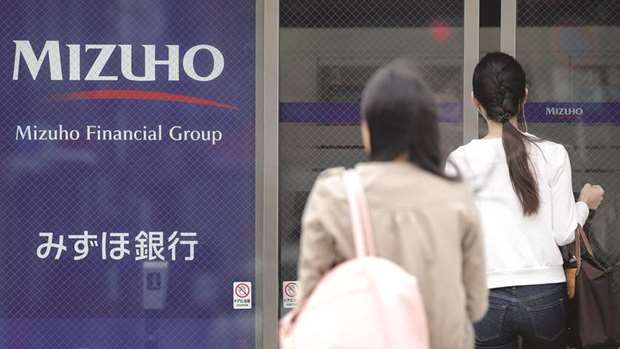As Japanese banks grow nervous about the country’s soaring property market, investors are turning increasingly to yield-hungry insurers and leasing companies for alternative sources of funding for their commercial real estate holdings, according to Mizuho Financial Group Inc.
In the past two years, Japanese banks have reduced the proportion of so-called senior loans they are prepared to offer to about 60-70% of the value of a typical property, from 80% previously, said Keiichi Hirata, head of real estate finance at Mizuho’s securities unit. That has boosted demand for mezzanine finance, a type of borrowing that ranks lower than the senior loans in the event of a default, Hirata said in an interview.
“Even though banks think real estate prices are likely to remain high, they are aware of the risk that they could fall,” said Hirata. “If you asked if they are in a position to lend aggressively in terms of loan-to-value at the moment, the answer would be no.”
Outstanding real estate loans totalled ¥74tn ($650bn) in September, a record high in central bank data dating back almost half a century. But the pace of growth in new credit has been falling amid concerns about how prices will react to the expected jump in the supply of new offices next year. Total loans rose by 5.9% in the quarter ended September, down from peak growth of just over 7% in the same quarter a year ago.
Meanwhile, large Japanese leasing companies and life and property insurers are willing to provide mezzanine finance for investors due to the higher returns compared with the senior credit tranches, Hirata said. Domestic institutions are increasingly willing to take on greater risk in return for yield in the country’s ultra-low-interest-rate environment.
Hirata said the mezzanine loans are a growing source of fee income for Mizuho Securities Co, which arranges the transactions. He estimated that the total size of the mezzanine market has risen to about ¥300bn.
Demand for leverage among investors in Japanese real estate continues to grow as prices have marched higher, depressing yields. The expected return on investment in Tokyo office properties was 3.4% in October, according to CBRE Inc, the lowest since the real estate services firm began its quarterly surveys in 2003.
Earlier this month, Norway’s $1tn sovereign wealth fund said it planned to use leverage as part of its ¥93bn acquisition of a portfolio of five Tokyo properties, an unusual decision for the cash-rich fund. Prior to the purchase, its chief executive officer Yngve Slyngstad had said rising prices made it hard for the Norwegian fund to find attractive real estate investments in Japan.
Concern about the sustainability of real estate prices has been fuelled by the expected jump in supply. In Tokyo’s three central wards, new leaseable office space in buildings with floors of over 661 square-metres will rise to about 1.8mn square metres in the three years to 2020, from 1.2mn square-metres in the three years to 2017, according to Toyokazu Imazeki, chief analyst at office leasing and consulting firm Sanko Estate Co.

As Japanese banks, including Mizuho Financial Group, grow nervous about the country’s soaring property market, investors are turning increasingly to yield-hungry insurers and leasing companies for alternative sources of funding for their commercial real estate holdings, according to sources.
